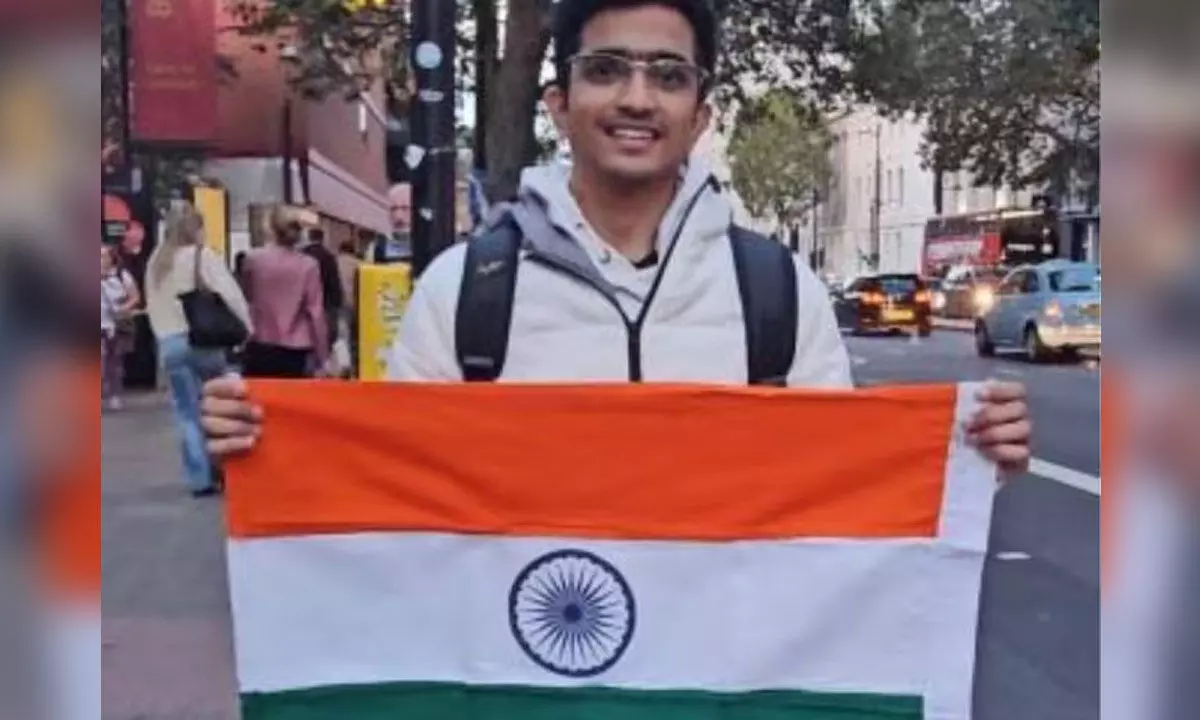Live
- Over 7,600 Syrians return from Turkiye in five days after Assad's downfall: minister
- Delhi BJP leaders stay overnight in 1,194 slum clusters
- Keerthy Suresh and Anthony Thattil Tie the Knot in a Christian Ceremony
- AAP, BJP making false promises to slum dwellers for votes: Delhi Congress
- 'Vere Level Office' Review: A Refreshing Take on Corporate Life with Humor and Heart
- Libya's oil company declares force majeure at key refinery following clashes
- Illegal Rohingyas: BJP seeks Assembly session to implement NRC in Delhi
- Philippines orders full evacuation amid possible volcanic re-eruption
- Government Prioritizes Welfare of the Poor, says Dola Sri Bala Veeranjaneyaswamy
- Two Russian oil tankers with 29 on board damaged due to bad weather
Just In
Navigating Ideological Tensions: The Case Of Satyam Surana At The London School Of Economics


- Explore the complexities of student politics and ideological polarization through the experiences of Satyam Surana, an Indian student targeted during his campaign for the student union elections at the London School of Economics.
- Delve into the challenges of navigating smear campaigns, political affiliations, and international perceptions, highlighting the importance of fostering constructive dialogue and intellectual exchange in academic environments.
The case of Satyam Surana, an Indian student at the London School of Economics (LSE), sheds light on the intricate dynamics of student politics and ideological polarization within academic institutions. Satyam's allegation of being targeted and labeled a 'fascist' during his campaign for the student union elections underscores the intense and often hostile environment prevailing within the campus political sphere. Such incidents highlight the prevalence of personal attacks and ideological smear campaigns as tactics employed by opponents, rather than engaging in substantive debates or constructive dialogue.
Throughout his campaign, Satyam faced various challenges, including the vandalism of his campaign materials and derogatory messages associating him with the BJP and right-wing ideologies. These tactics reflect a divisive atmosphere where political affiliation, whether real or perceived, becomes a focal point of contention. The utilization of Satyam's photo with Maharashtra Deputy Chief Minister Devendra Fadnavis as evidence to link him to the BJP exemplifies how even tangential connections to political figures can shape perceptions and influence the narrative in a highly polarized environment.
Despite the allegations against him, Satyam emphasizes the non-political nature of his manifesto, which primarily focuses on addressing campus issues such as grievance redressal and subsidized food. This dissonance between his actual campaign agenda and the narrative constructed by his opponents underscores the disconnect between perception and reality in the realm of student politics. Moreover, Satyam's experience highlights the broader challenge of navigating ideological divides and overcoming preconceived notions within academic environments that should ideally foster open-mindedness and intellectual exchange.
Satyam's discussion of international perceptions of India, particularly regarding Prime Minister Narendra Modi, further complicates the narrative. He suggests that those opposing him are misinformed about India's domestic situation and are motivated by ideological differences rather than factual understanding. This aspect illuminates the global dimension of campus politics and how international events and perceptions can influence local dynamics, contributing to the complexity of the situation faced by Satyam and others involved in similar controversies.
In conclusion, the case of Satyam Surana at the London School of Economics underscores the challenges inherent in student politics, especially in multicultural and ideologically diverse environments. It underscores the importance of fostering respectful dialogue, acknowledging differing viewpoints, and addressing grievances through peaceful means rather than resorting to divisive tactics. Satyam's experience serves as a poignant reminder of the need for universities to uphold principles of academic freedom, intellectual diversity, and democratic participation in order to cultivate a truly inclusive and vibrant campus community.

© 2024 Hyderabad Media House Limited/The Hans India. All rights reserved. Powered by hocalwire.com






